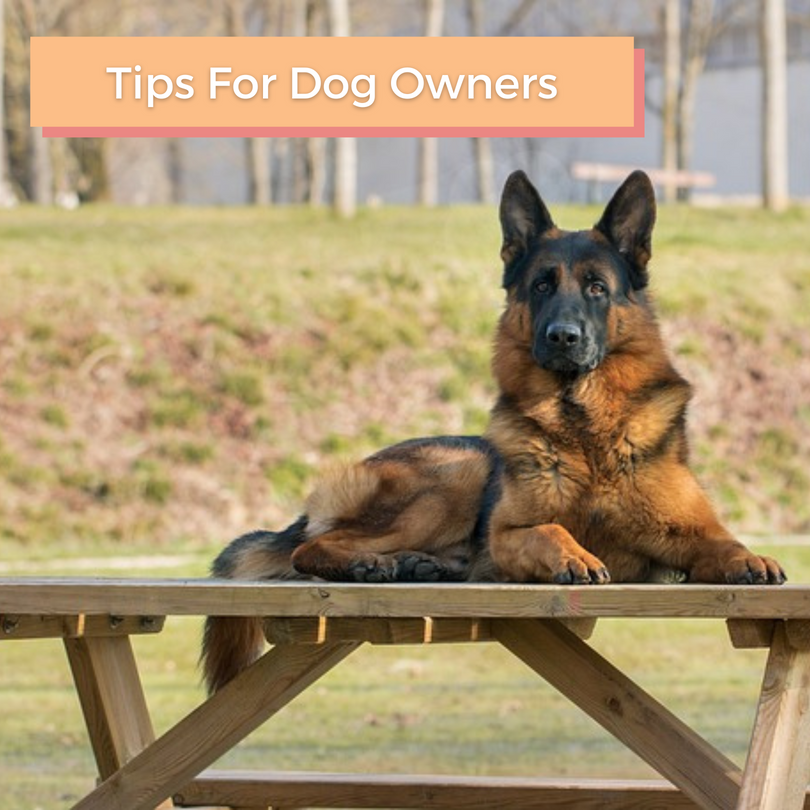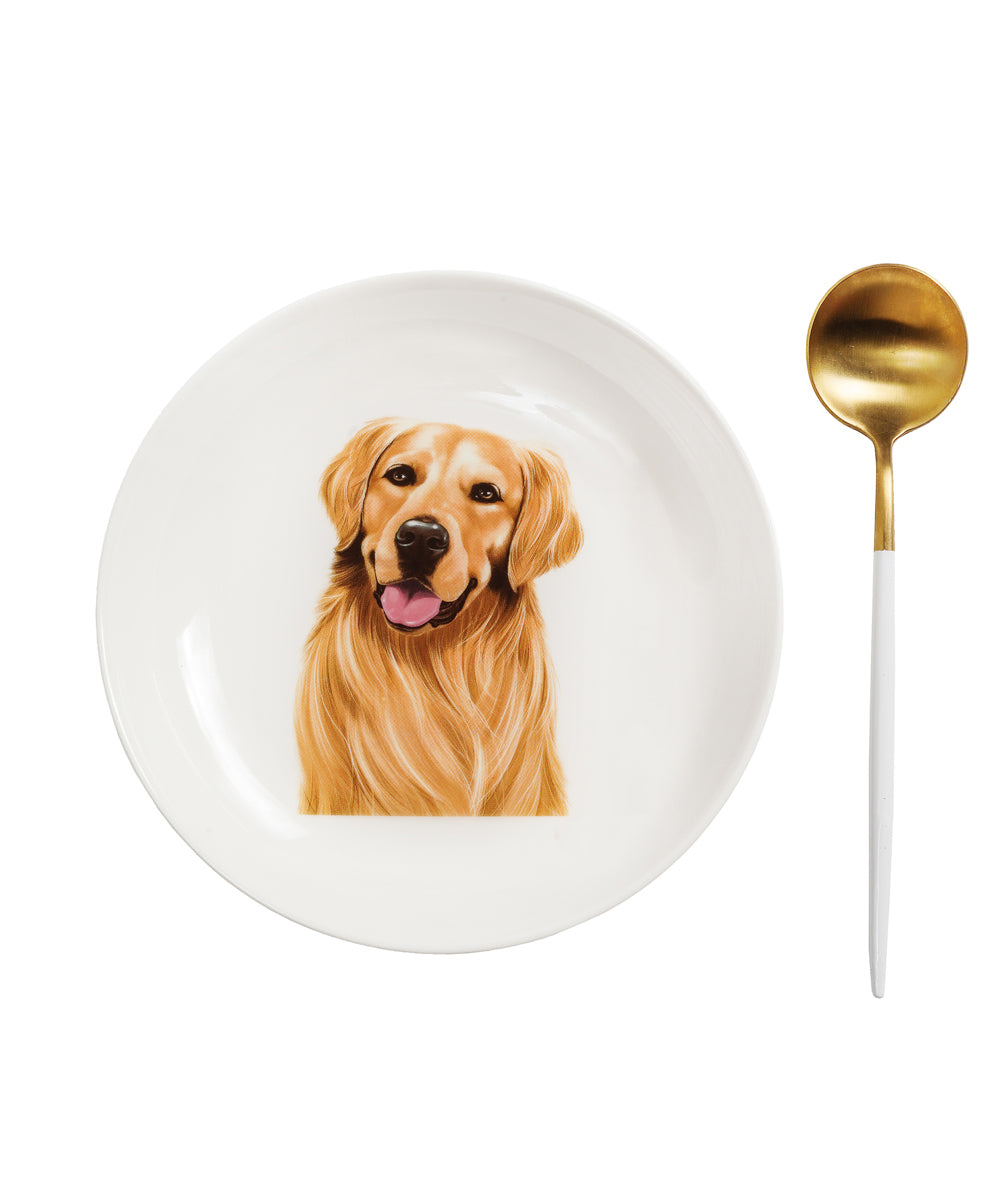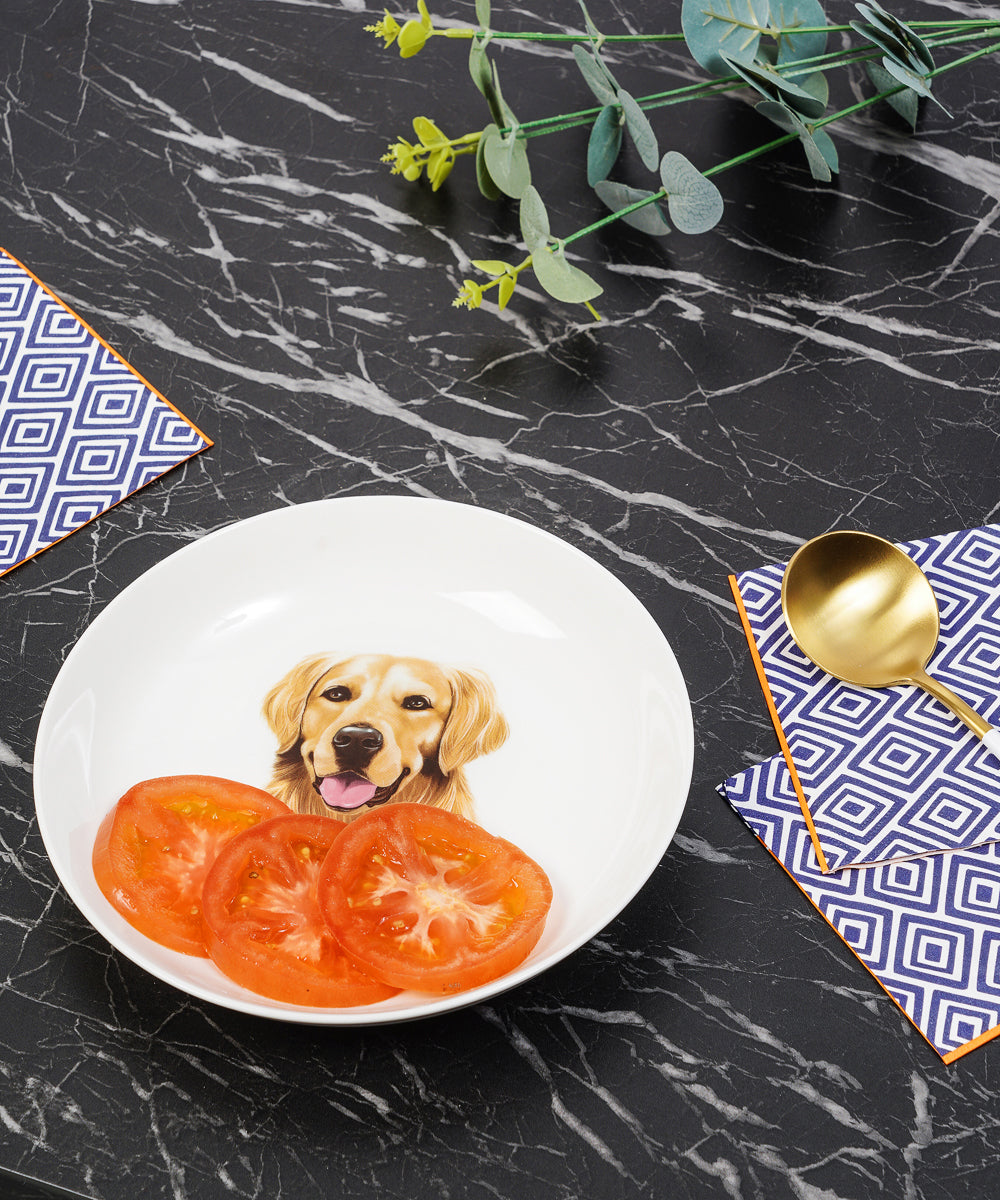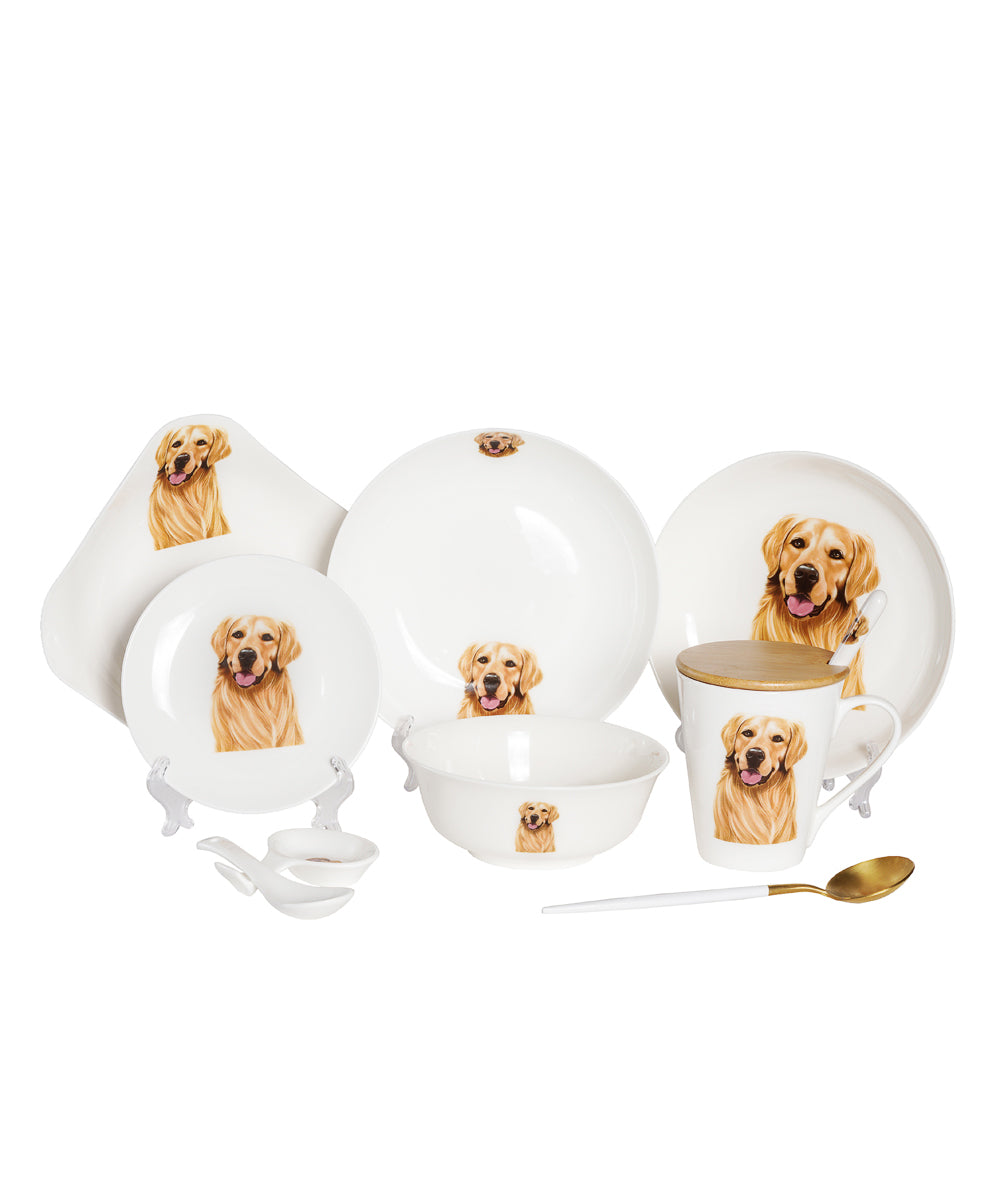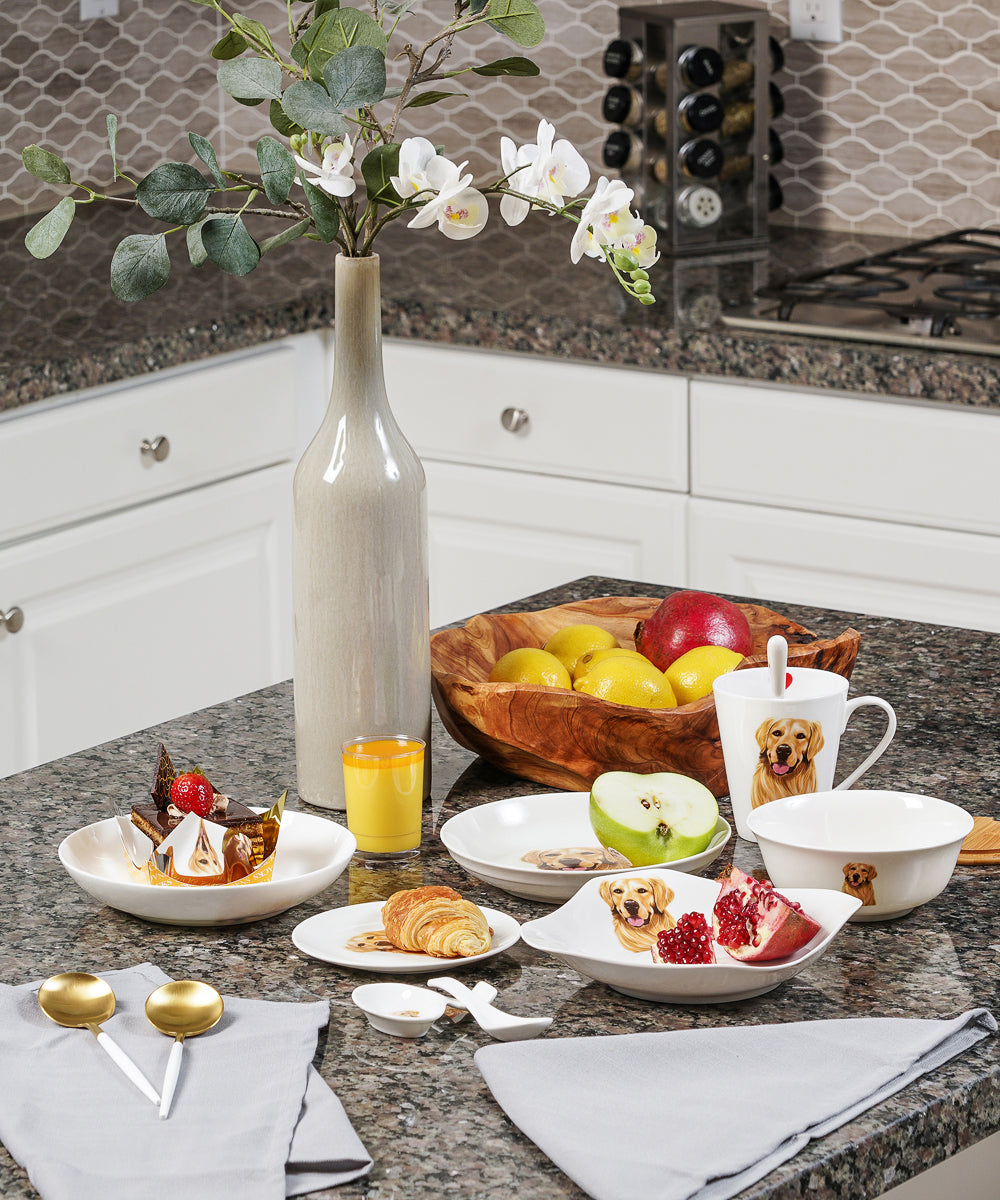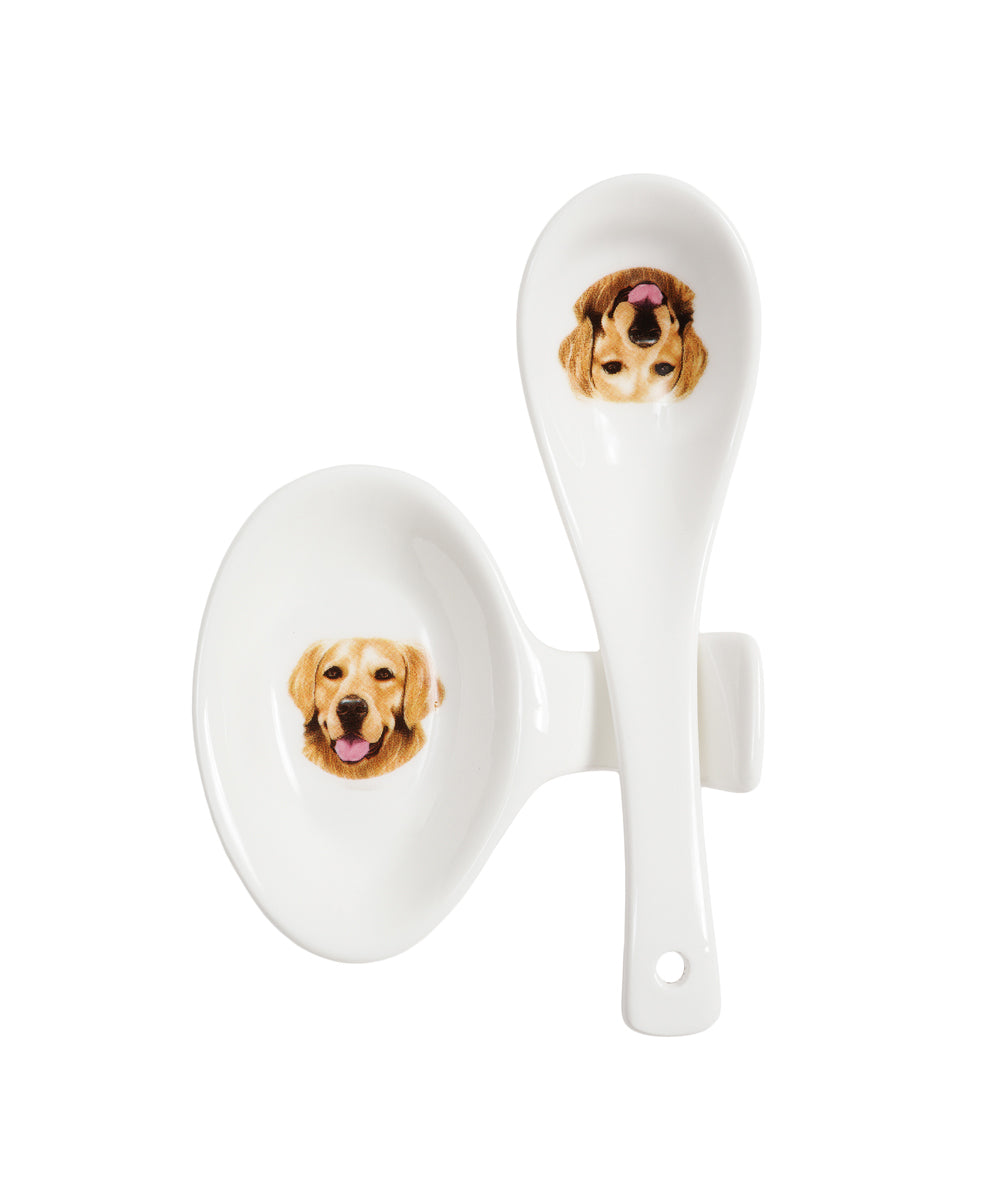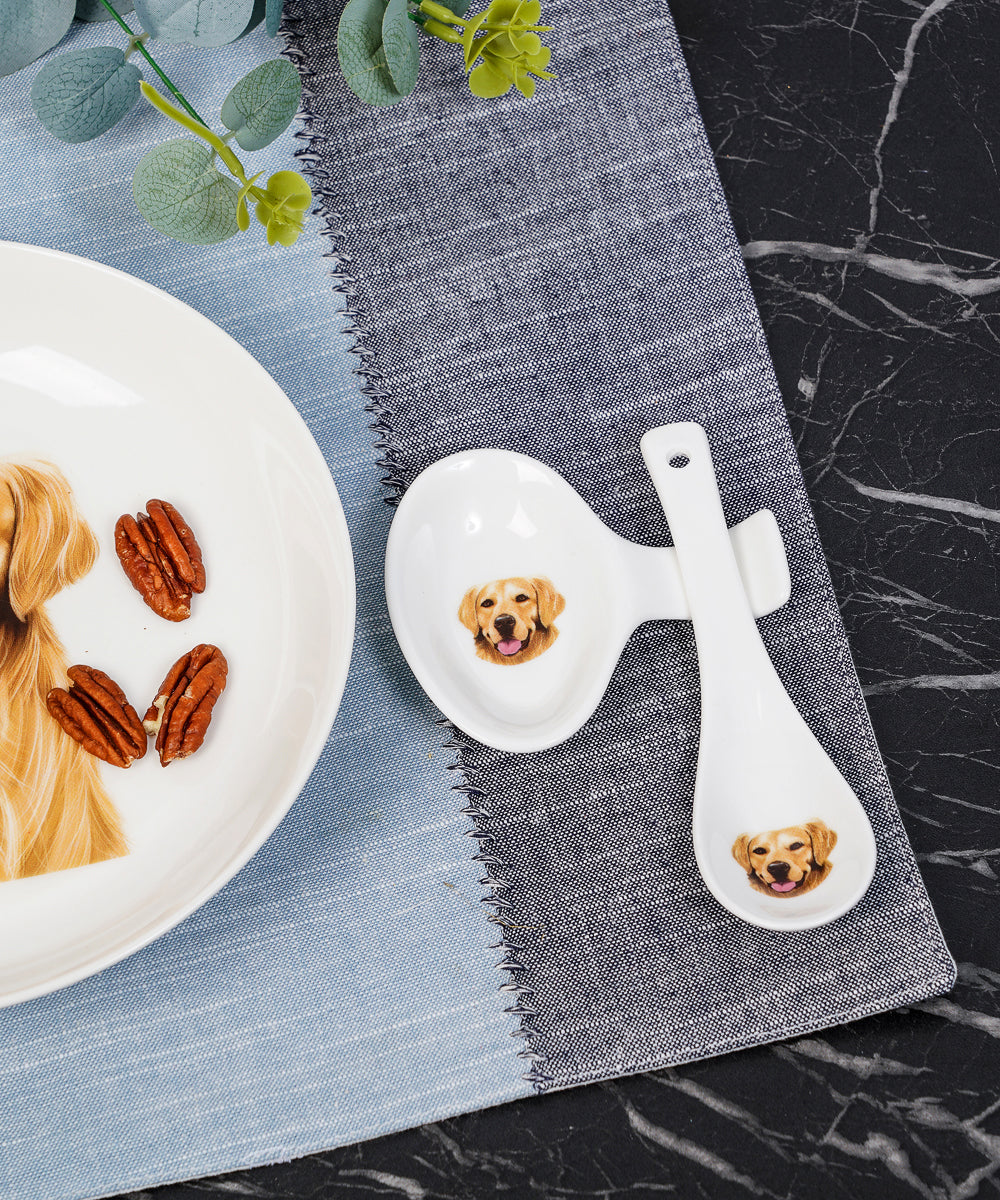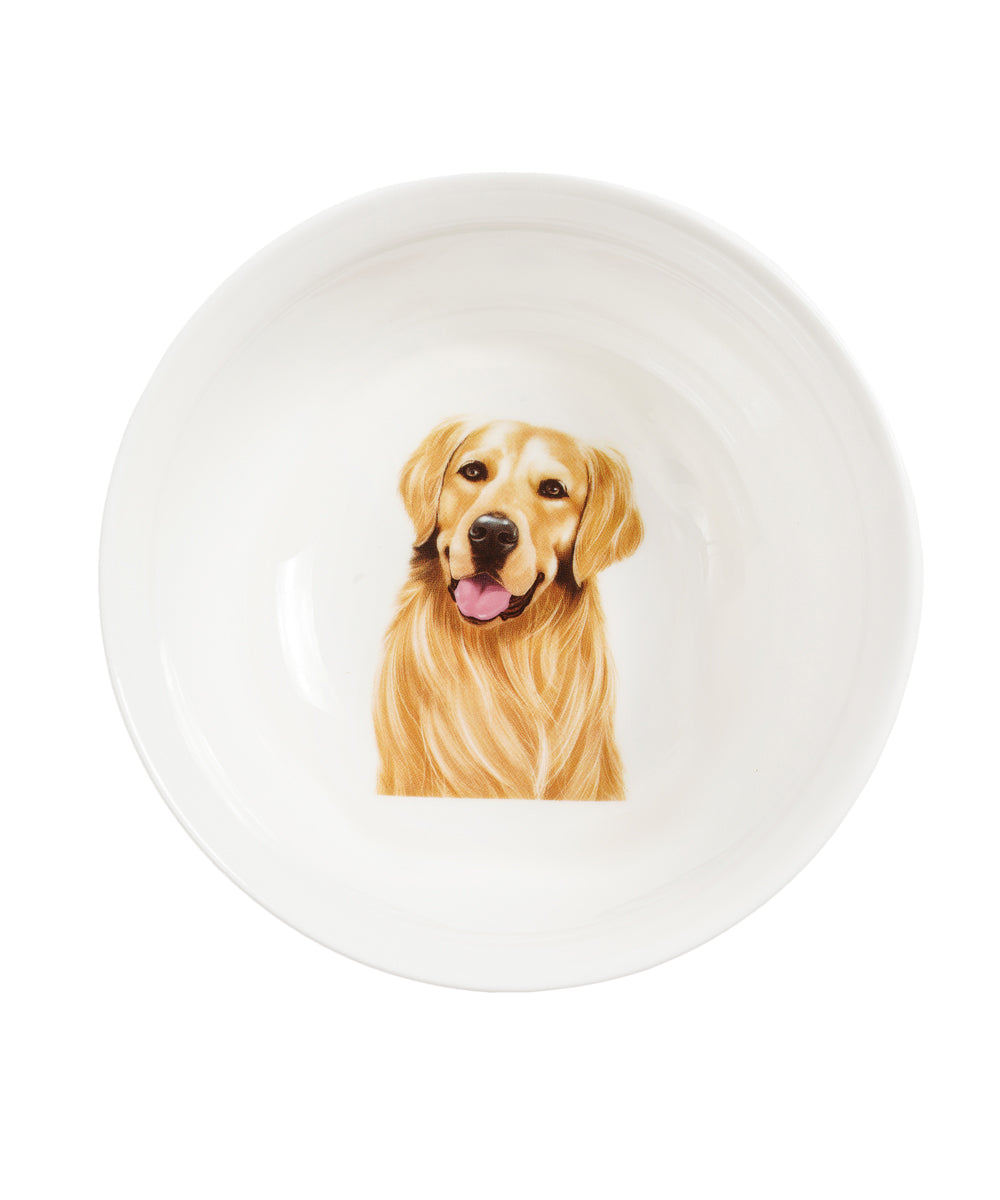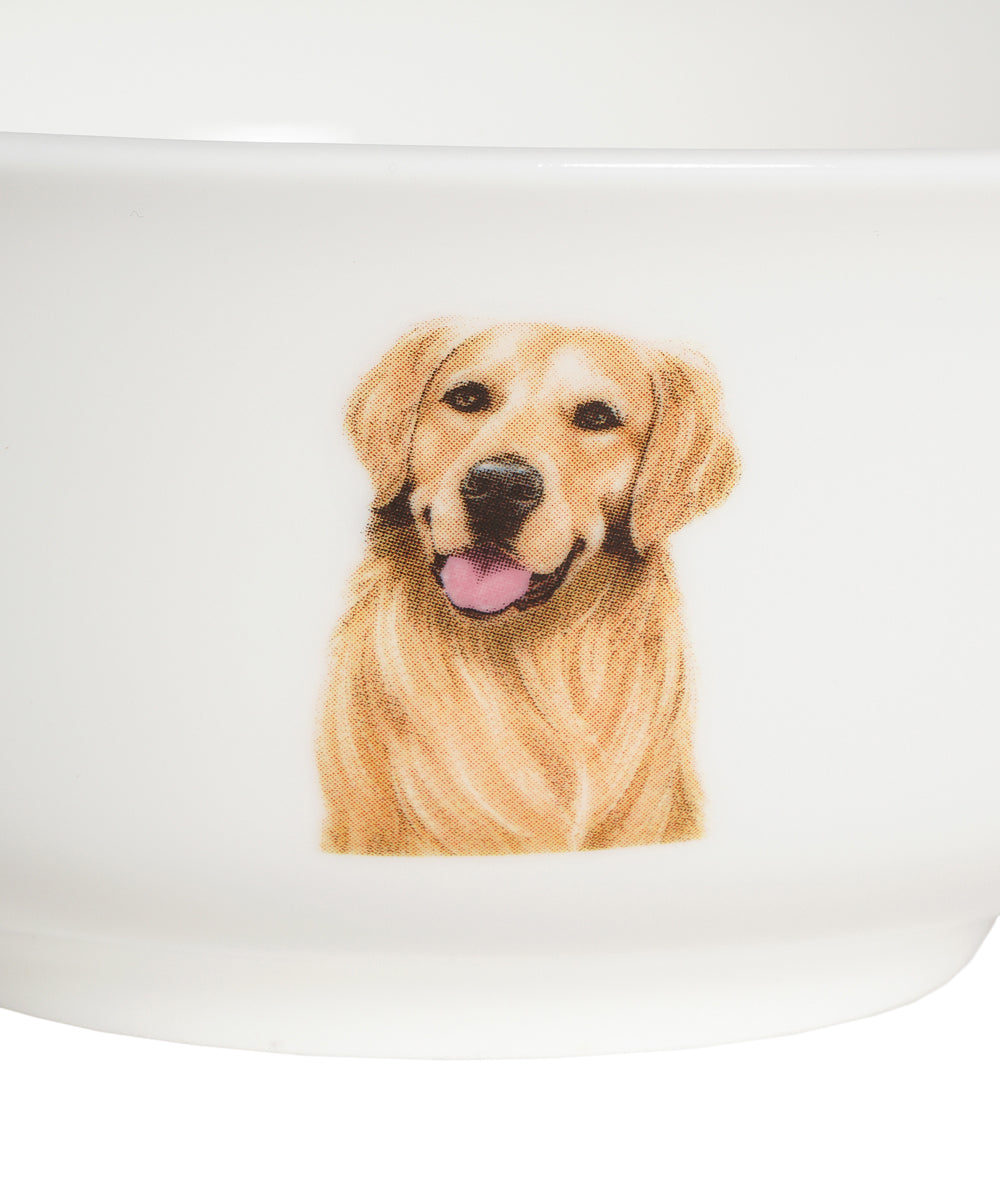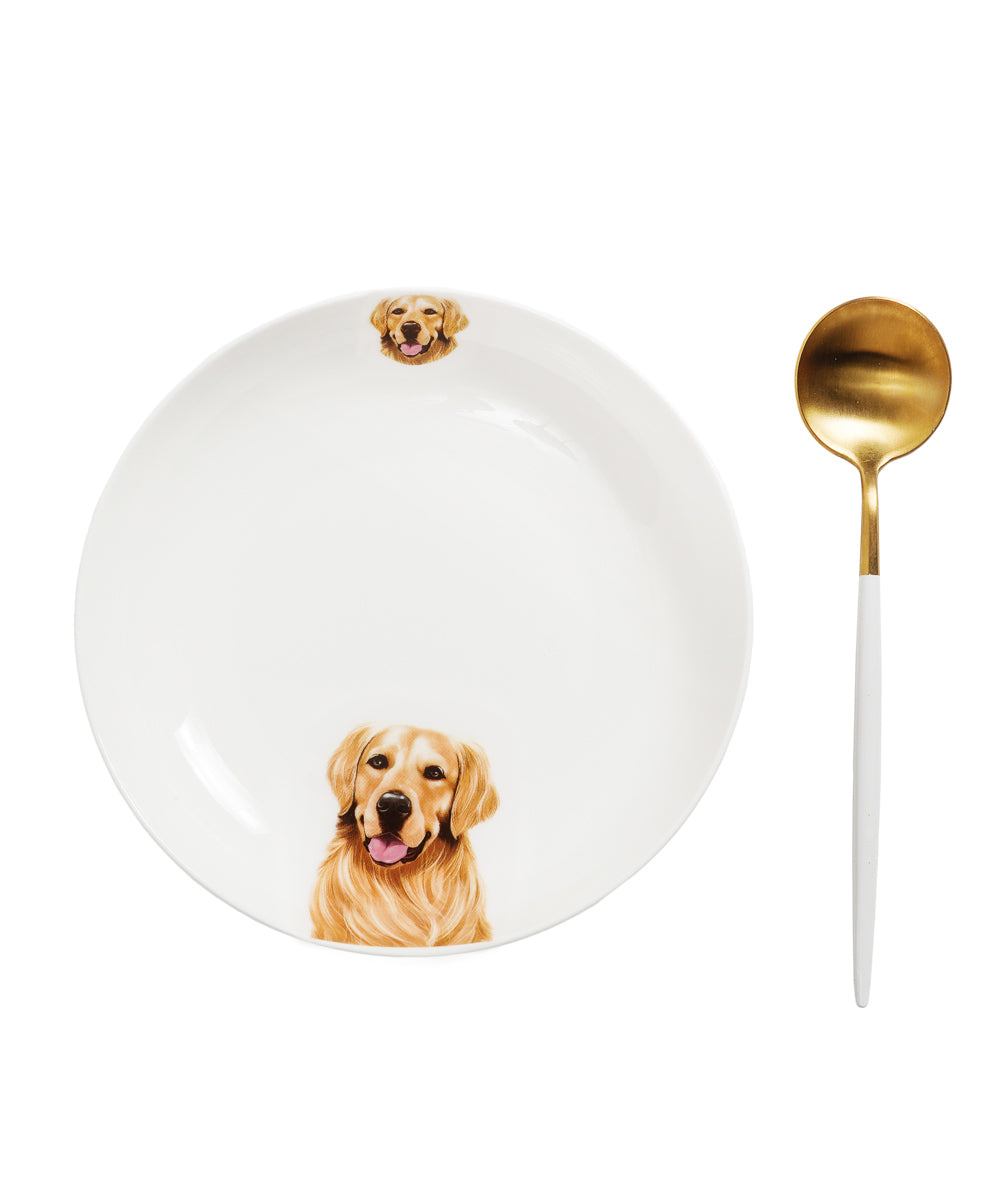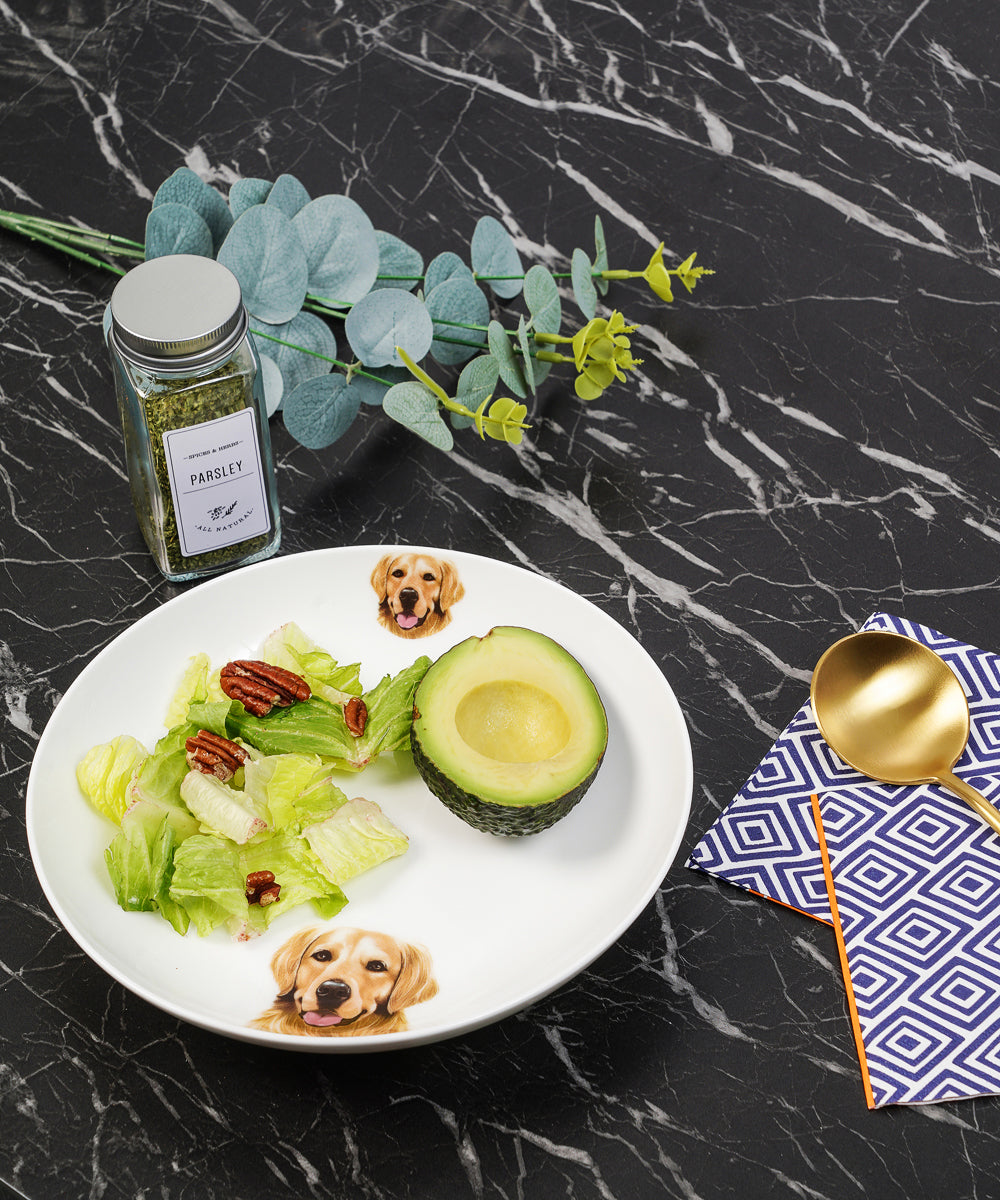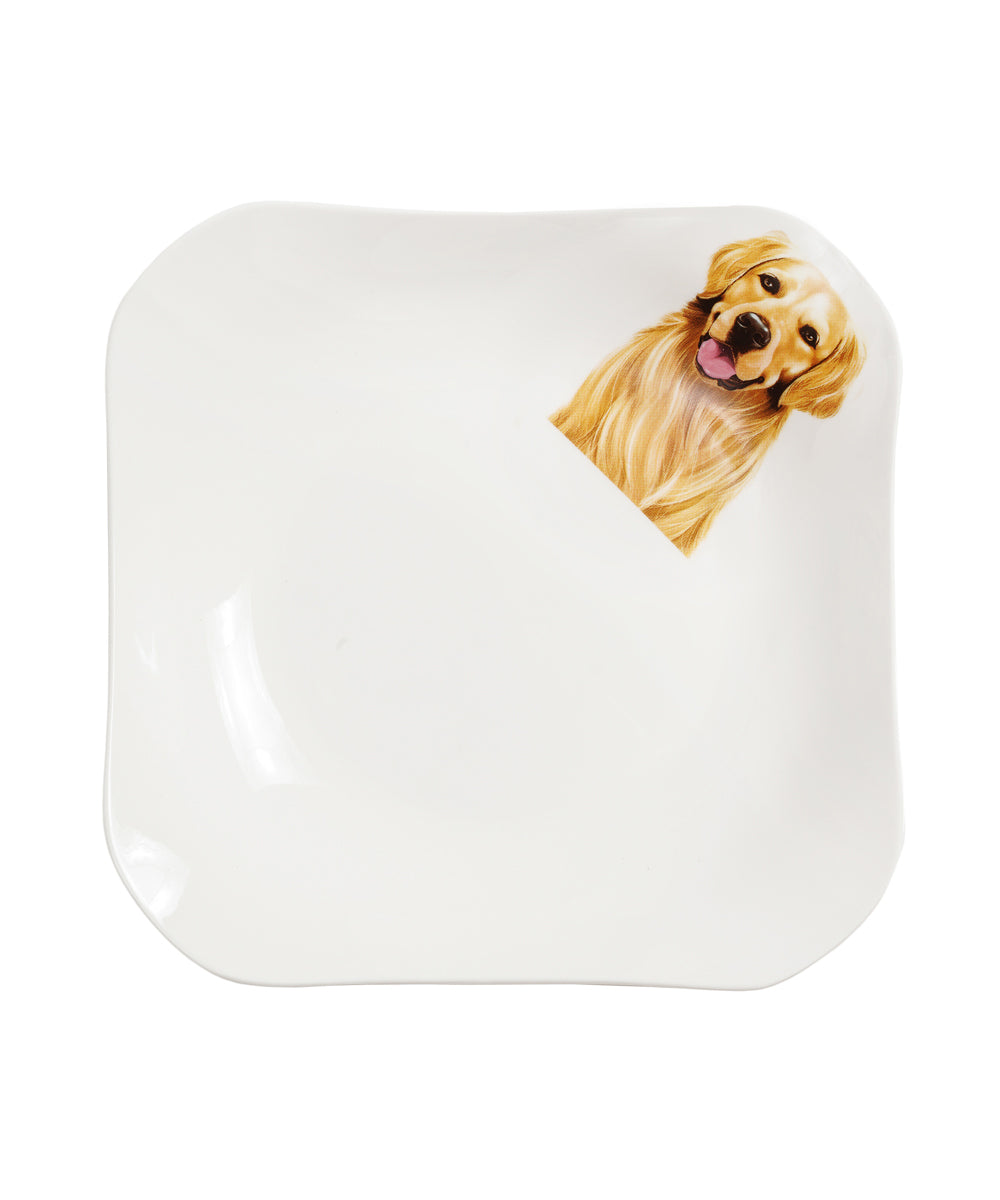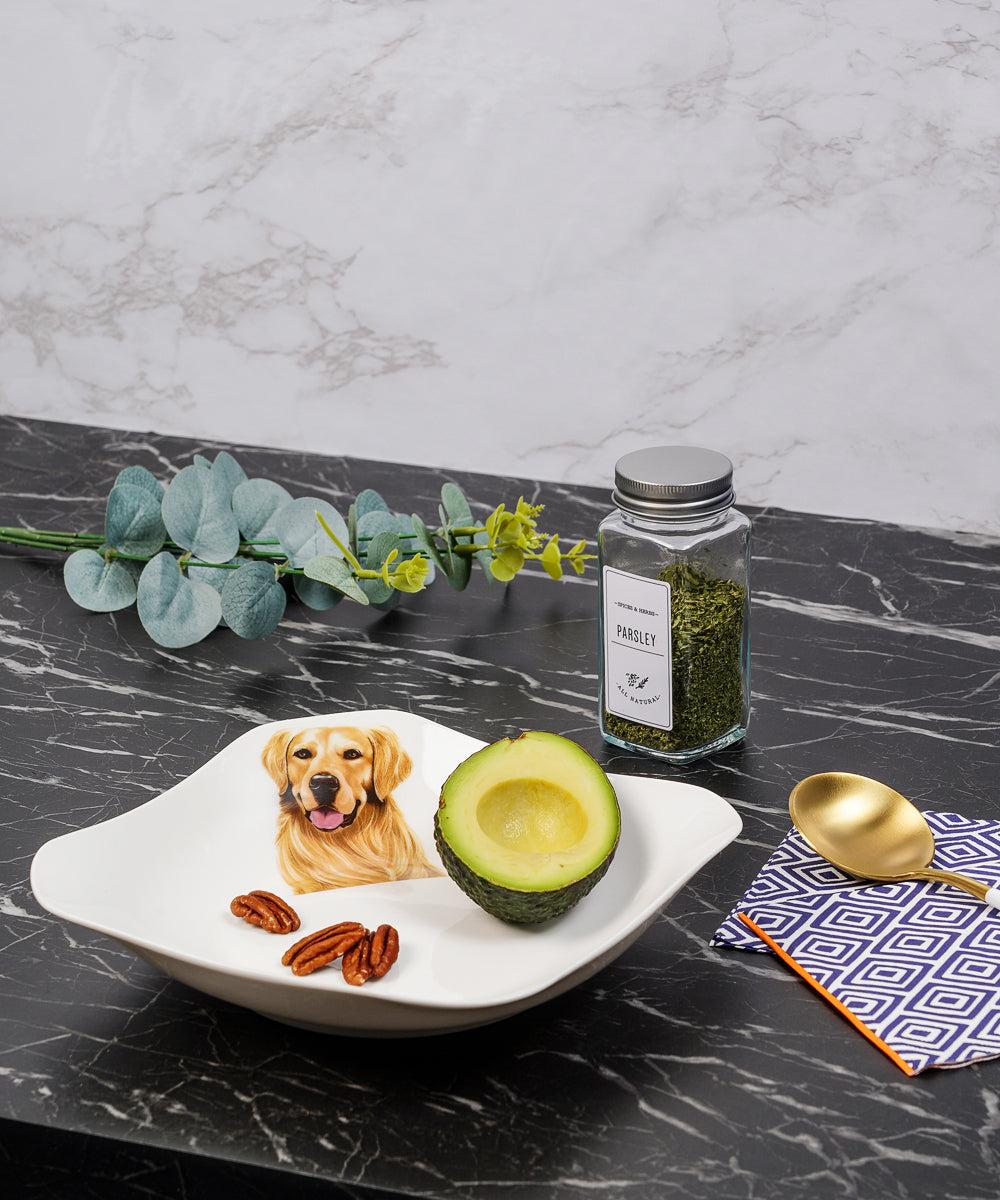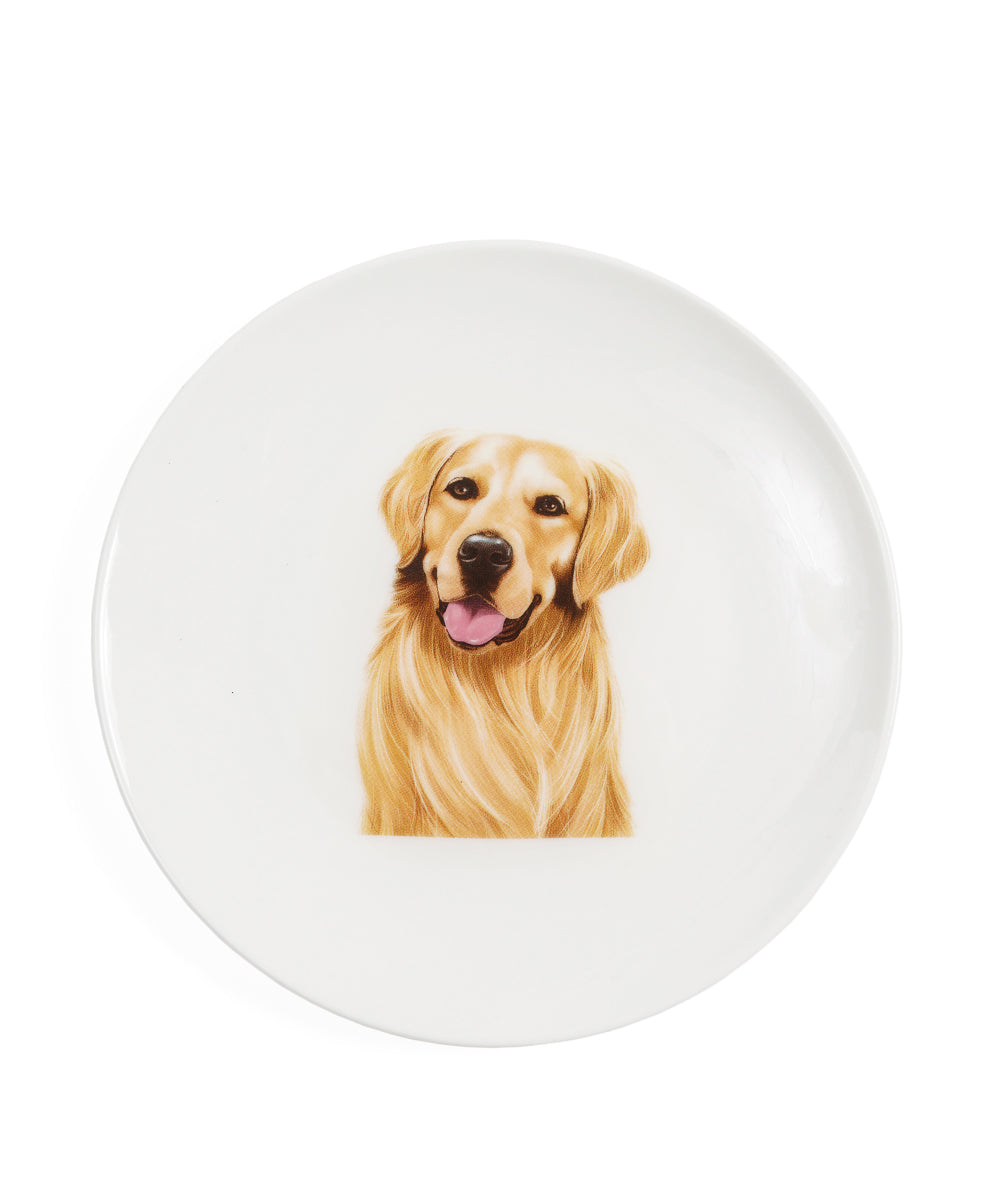In fourth grade, I pleaded with my parents to get a dog. My sister and I were jealous that everyone else had a dog and we wanted a pet, too. My dad caved and agreed it was time to add a furry family member to our crew--but insisted it had to be a Golden Retriever because they’re the best for kids. Our Field Golden, more red than blonde, Cinnamon (Cinny) was gifted to us as a puppy, and I fell in love with the breed. Decades later, I’m still smitten.
According to the American Kennel Club (AKC), Goldens are currently the third most popular dog breed in the US. (Labrador takes the top spot, followed by Frenchies at No. 2!) And I know exactly why: Goldens are beloved—they’re not only common Guide Dogs/Emotional Support dogs; they’re the epitome of friendly.

Goldens are a great breed for families who like bigger dogs; but not TOO big. Male Goldens can grow to approximately 24 inches in height; weighing between 65 and 75 lbs, while females grow to about 22 inches with an average weight of 55 to 65 lbs. Both female and male Goldens usually live to about 10-12 years; so keep this in mind if you’re adopting an older Golden; or one that will grow with your children if there are any in your home.
Overall, a Golden is a pretty healthy breed. However, if not active enough, they can pack on the pounds. So, even though Goldens like to chill out next to you after a long day of fetch, keep an eye on what they eat, because they do love human food/table scraps, and if they’re overweight, it can cause strain on their hearts.
As with all breeds, make sure your Golden is screened by the vet for concerns such as heart disease, as well as vision problems and hip dysplasia (all common for this breed)—which sadly my Cinny had; in her later years her legs were so frail it was hard for her to move around, and her vision was poor so she would walk into walls and the sofa. As sad as it is, the truth is, dogs age and have health ailments just like their human besties.
Golden Retrievers are easy to train, and their obedience is a big reason why families gravitate towards them. They may greatly understand “stop, go, no, and fetch.” If you have a designated area in the yard for your Golden to go “potty”, chances are they’ll “potty train” well after just a few practice runs in a certain patch of grass.
Gentle, loving, and affectionate, Goldens love following their masters everywhere, so don’t be shocked if they’re curled up next to your toes when you’re sitting on the sofa. They’re the ultimate snuggle buddy.

They’re also known for being calm and patient around young kids—even protective. Goldens are full of energy and will thrive in a home where their masters are active—they love to run, fetch (most will go “crazy” if you toss them a ball—they can’t get enough), and, of course, join the family on walks. They have a chipper “vibe” and will love escorting you anywhere outside the home because they’re staying active, and hanging out with their human best buds.
Goldens may be less active as they age, but keep up their daily walks—and consider hiring a dog walker if you own a Golden and aren’t around much during the day.
Enjoy every moment with one of America’s most beloved breeds!








